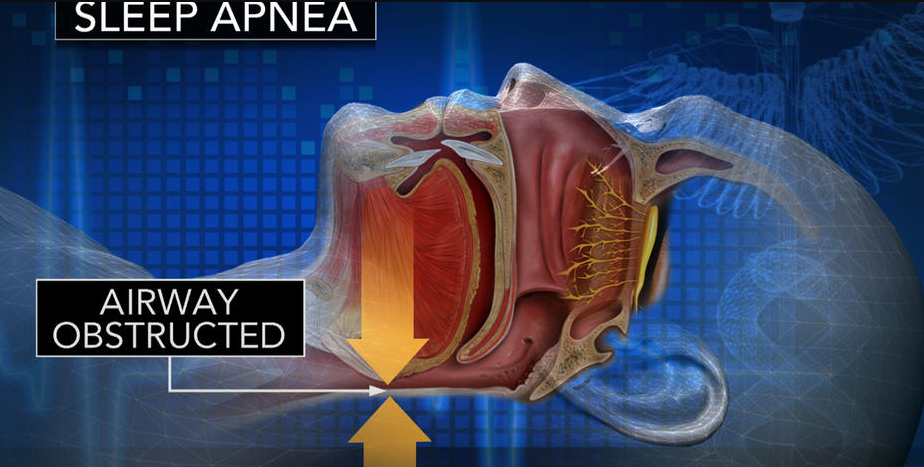

Sleep disorders are commonly found in older and obese individuals. The most common and fatal sleep disorder is sleep apnea. There are three types of sleep apnea: obstructive sleep apnea (OSA), central sleep apnea (CSA) and treatment-emergent central sleep apnea.
In order to treat sleep apnea, you should know its symptoms. In this guide, you will find everything that is there to know about obstructive and central sleep apnea. So, let's get into it before it's too late to diagnose it.
Sleep apnea is a condition where your breathing starts and stops multiple times while you sleep. To compensate for the breath, you wake up mildly to inhale properly throughout the night; still, this results in less oxygen supply to the body. Not only can it leave your mouth dry when you wake up, feeling tired throughout the day with little or no concentration, but it also has severe health effects if left untreated for a long time. Sleep apnea patients also witness liver scarring. Also known as nonalcoholic fatty liver disease. Some other affect sleep apnea can have on your body are:
Restless sleep during the night can cause your mind not to refresh itself, resulting in poor functioning of the body. Mild sleep apnea only has disordered breathing and poor sleep quality.
To diagnose sleep apnea, an overnight sleep study is conducted with a series of steps based on your sleep symptoms and sleep history provided by someone who lives with you. Then you are subjected to a sleep disorder centre for further evaluation if seen fit by a sleep specialist.
There are two types of tests: nocturnal polysomnography and home sleep test. In polysomnography tests, your oxygen level, body moments, lungs, heart, brain activity and everything is monitored while you sleep. The other is an In-home test. Your healthcare provider brings simple instruments to take a reading on everything while you sleep in your home.
Obstructive sleep apnea occurs due to blockage in the upper airway, which could be treated with CPAP therapy. Some of the symptoms of OSA are:
Central sleep apnea syndromes are associated with the brain's inability to send signals so that you can breathe, causing breathing interruptions. Slow and low breathing and oxygen levels can cause several other problems, such as:
CPAP therapy is the most profound treatment for sleep apnea and is most commonly used worldwide for breathing problems. It provides the required air pressure to keep the air passage to the lungs open so you can breathe uninterrupted during sleep, resulting in a proper supply of oxygen to the body. There are different CPAP machines for different sleep apnea conditions.
Excess weight can cause sleep apnea because of fat tissue buildup, but it can also worsen the situation. Not having enough sleep can also lead to weight gain. Making it a malicious cycle. It is observed that weight loss improves sleep apnea. Obesity hypoventilation syndrome is found in obese people and is a breathing disorder. This disorder is directly connected with untreated sleep apnea, in which patients stop breathing while sleeping
Sleep apnea in children is different to how sleep apnea is in adults. While adults may have symptoms like daytime sleepiness, fatigue, low libido, etc., children don't suffer from the same symptoms. They have behavioural problems. The cause of sleep apnea in childer is also different from adults. In children, it is due to adenoids and tonsils. Early detection and treatment of sleep apnea in children can prevent child growth, cognitive ability and behaviour.
Doctors may suggest lifestyle changes for mild OSA, such as:
It may also require surgery in cases when excess throat muscles relax or there is excess tissue in the soft palate.
Sleep apnea is a chronic condition that cannot go away on its own. Your anatomy remains the same after a certain age, making it challenging for sleep apnea to go away easily. On average, recovery results are shown within 3-4 months, and full recovery can take up to a year. With discipline and consistency, this can now be reduced.
Sleep apnea is a common condition; up to 1 billion suffer from it worldwide. Although symptoms may not seem fatal in the early stages, they become fatal after prolonged procrastination in the treatment. In severe cases, patients can fall asleep anytime, which can cause serious complications, from road to household accidents. Early detection and treatment can save a lot of lives and money.
Leave a comment